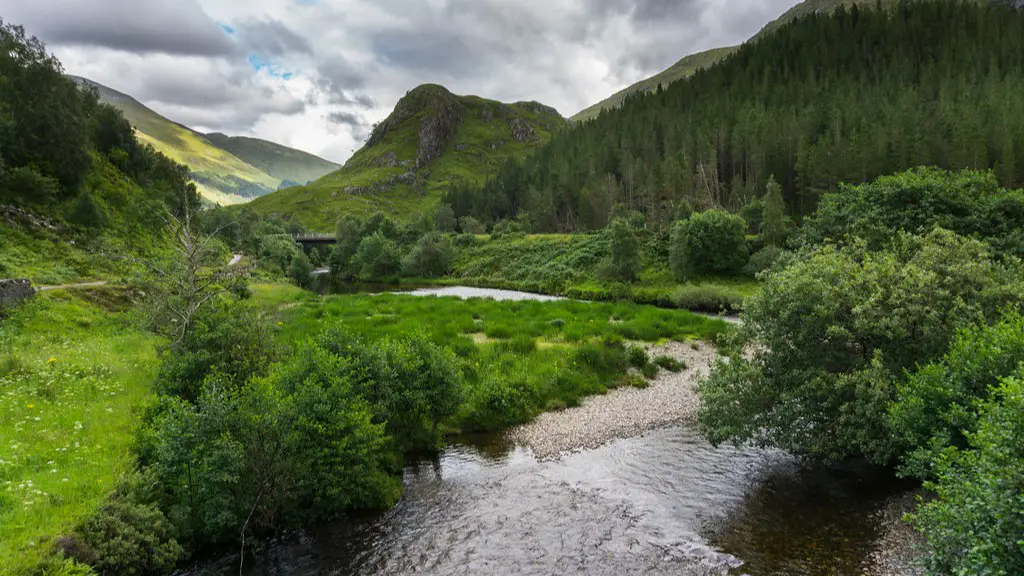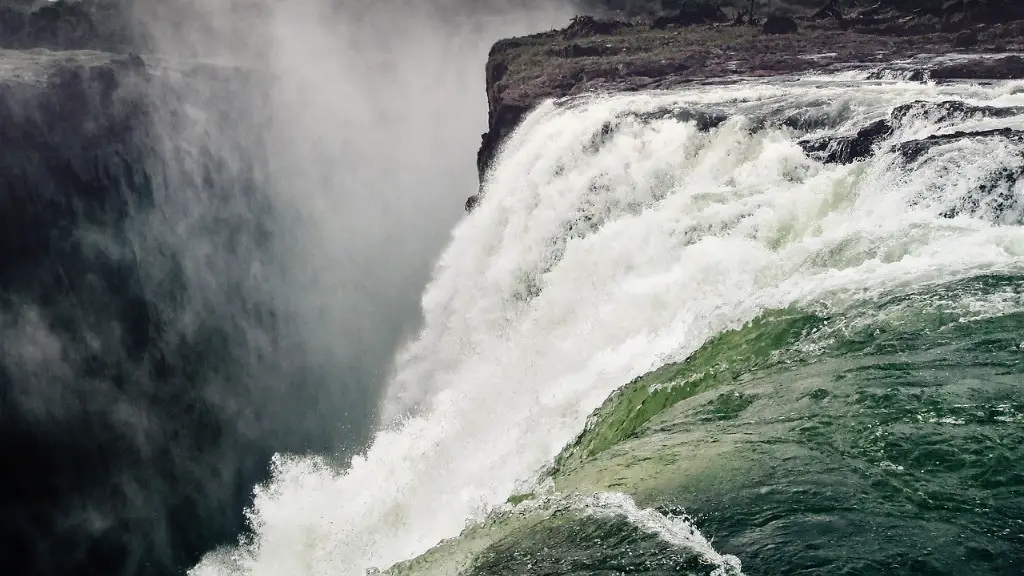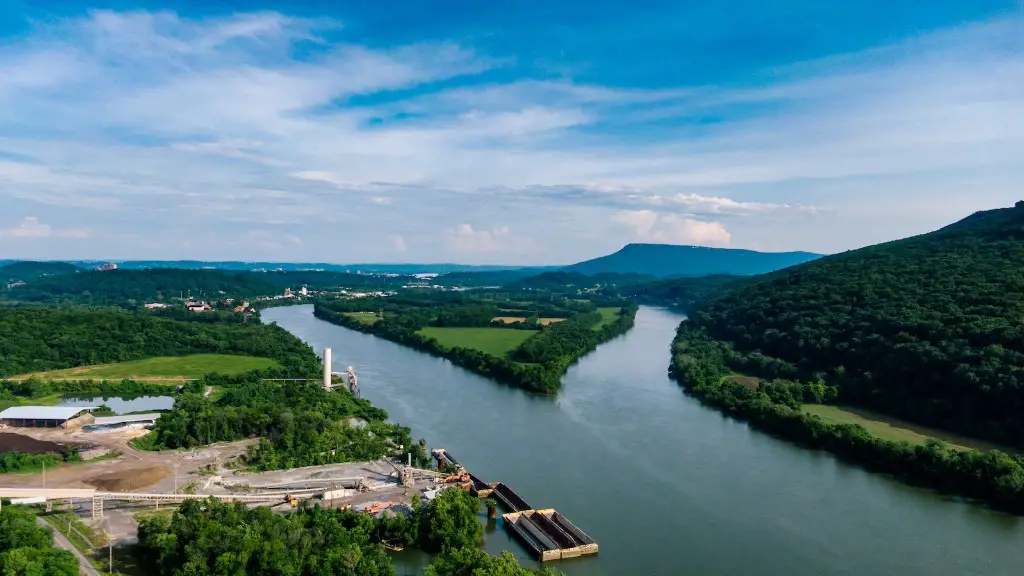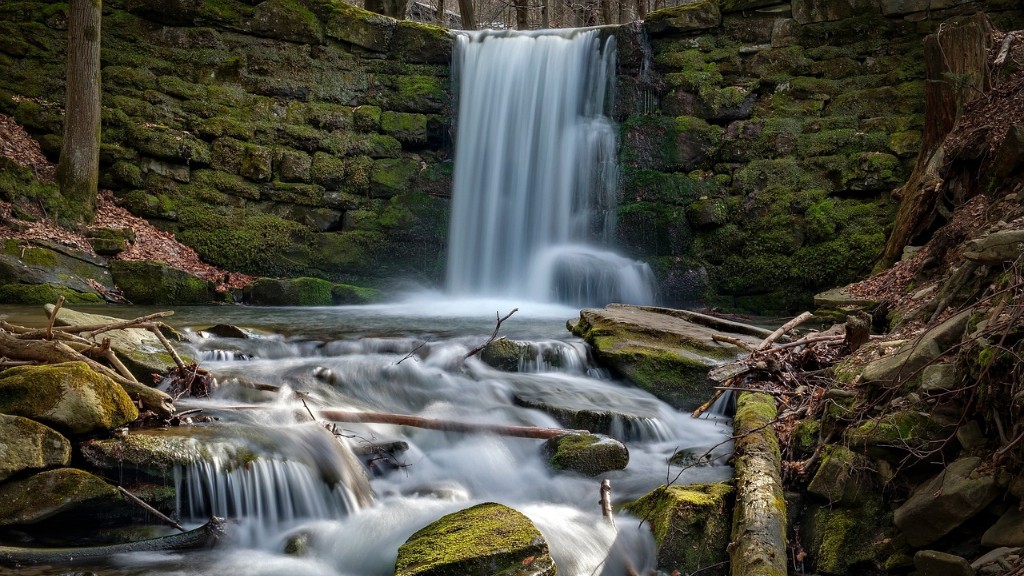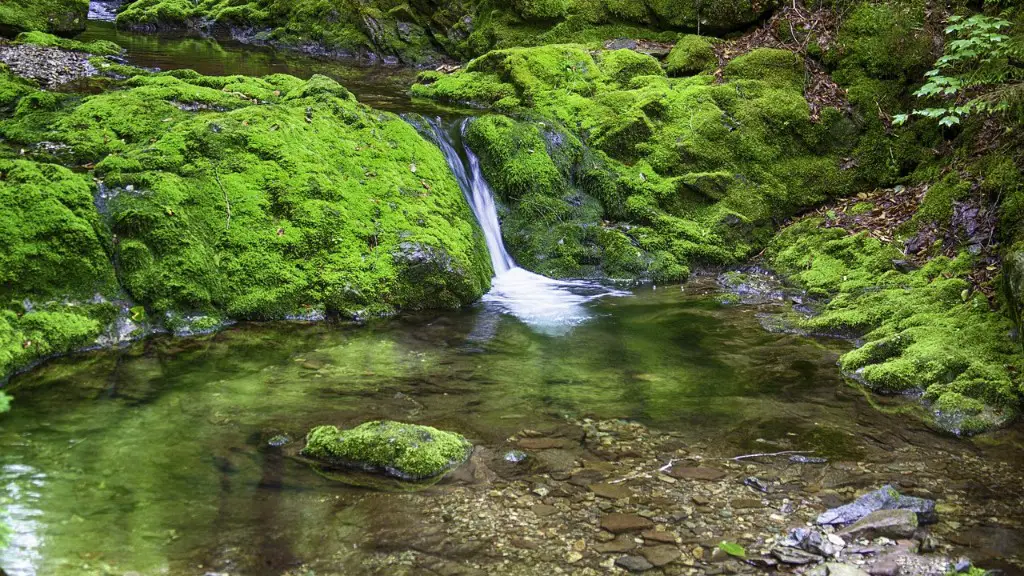The Mississippi River, one of the world’s longest and most powerful rivers, has carved its path through the central United States for centuries. This mighty river has its origin in the headwaters of Minnesota and its convergence into the mighty Gulf of Mexico in Louisiana. The meeting point of the Mississippi River and the Gulf of Mexico, known as the Mississippi Delta, is one of the most vibrant and important ecosystems on the planet. It is a vital part of the US economy and the local ecology.
The Delta is a huge area comprising wetlands, channels, forests and farms, that are a network of dynamic ecosystems. It is home to various species of birds, fish, reptiles, mammals and a host of other animals and plants, some of which are unique to the area. The converging of the Mississippi River creates numerous habitats for these creatures and plants, which are essential for their survival. Furthermore, the Delta provides essential habitat for migrating birds, since it acts as a stopover point along their routes.
The Mississippi Delta is dynamic, with evolving changes to its environment. It is especially prone to the rising sea levels due to climate change, and there has been a tremendous loss of land since the 1940s. This has resulted in the fragmentation of the habitat, making it difficult for animals and plants to move and forage. As well as the direct environmental impacts of climate change, the Delta has suffered from various other human-induced impacts, such as coastal erosion, water pollution and excessive sedimentation.
Despite all of these threats, the Mississippi Delta has immense economic, ecological and cultural value. As well as providing habitat for numerous species, it is known for producing fish, shrimp and oysters, which are significantly important for the local fisheries. Moreover, the Delta provides material resources such as oil and gas, which boosts the local economy. Lastly, its vast wetlands act as natural buffers against storms and hurricanes, protecting local communities.
For centuries, the Delta has served as an active hub for human life and culture. The main driver of this activity is agriculture, and the region is known for its rich history of farming and agriculture. Local communities have held on to this culture, utilizing the Delta’s resources and vitalizing the region’s culture at the same time. The Delta has also been the site of levee construction projects, which have drastically changed the physical geometry of the region.
The intersection of the Mississippi River and the Gulf of Mexico, the Mississippi Delta, is an example of the beauty and power of Mother Nature. It has served as an invaluable habitat and economic engine, as well as a cultural center and a source of recreation, for generations of native peoples and settlers alike. Although climate change has posed many challenges to the Delta, it remains a vital and vibrant ecosystem.
Oil and Gas Resources
The Mississippi Delta is a major oil and gas production site, with numerous rigs located within the area operating 24 hours a day. Petroleum companies have been utilizing the Delta’s resources since the mid-20th century, by drilling hundreds of wells and transporting the crude oil to refineries on the Gulf Coast. In addition to being a major source of oil and gas for the US, the Delta also has considerable potential for geothermal energy production, which could provide a sustainable and renewable energy source for the US.
Oil and gas extraction in the Mississippi Delta is a controversial topic. Many locals oppose the extraction because of the potential damage it could cause to the environment, as well as the health risks posed by the toxins released from drilling rigs. Moreover, the ongoing maintenance and upkeep of the rigs requires large investments of time and resources, which have been a burden on the local economy.
Despite the controversy surrounding it, oil and gas extraction has been a vital source of income and economic growth for the Delta. It has provided jobs in the area, as well as millions of dollars in tax revenues. Additionally, it has enabled the US to become more energy independent, reducing its dependence on foreign oil supplies.
Fishing and Seafood Industry
The Mississippi River Delta is home to a thriving and important seafood industry, with seafood production playing a significant part in the economic growth of the region. Species such as catfish, oysters, and shrimp are exported from the Delta to many parts of the US, and the seafood produced here is both nutritious and delicious.
The Delta’s warm and shallow waters are ideal for the breeding of fish and aquatic life. The high salinity of the water allows for a rich diversity of species, which in turn supports a robust and diverse economy. In addition to providing seafood, the Delta helps to support the US nature and sports tourism industry, as the area is renowned for its abundance of recreational opportunities.
However, the fishing and seafood industry in the Delta is threatened by changes in the environment. The region’s rich landscape has been threatened by human activities such as pollution, coastal erosion and habitat fragmentation. Climate change has further exacerbated the already present threats, and extreme weather events, such as hurricanes, have caused endangerment to the area’s fragile ecosystems.
The health of the Delta’s fishing and seafood industry is closely tied to the health of its local ecosystems. Conservation efforts have been ongoing for many years, and have had a positive impact on the resilience of the Delta’s fisheries. Communities have worked together to rebuild habitats, restore wetlands and protect species, as well as promote sustainable practices and community involvement.
Cultural Impact of the Delta
The Mississippi Delta has had a profound impact on the culture of the US, especially in the South. The region has been a major source of inspiration for musicians, writers, artists and other creatives, who have drawn upon its unique history and scenery as a source of inspiration. It has also been the site of various civil rights movements over the years, which have highlighted the deep cultural importance of the Delta to the US population.
The Delta has provided a place of refuge and community for African Americans who have been subjected to racial oppression. The region has become an important center for African American culture, particularly in the area of music, where it has served as a hotbed for the development of jazz, blues and gospel music over the years. Other art forms, such as literature and theater, have similarly drawn from the Delta’s cultural heritage.
The main communities in the Delta are New Orleans, Baton Rouge, Jackson and Biloxi, all of which have played an important role in the region’s culture. New Orleans, in particular, is widely regarded as one of the most culturally vibrant cities in the US, and it serves as an important tourist destination for people from all around the world.
Environmental Conservation
Preserving the health of the Mississippi Delta is of immense importance, as its ecosystems are vital to both local and global interests. Numerous scientists and conservationists strive to protect the Delta’s habitats, species and resources, through a variety of projects and initiatives.
One such initiative is the Delta Society’s Nature-Based Tourism Program, which works to promote sustainable practices in the area, such as eco-friendly tourism activities. Furthermore, the Society works to restore habitats and wetlands, reduce pollution, and improve the water quality in the Delta. All of these activities have a huge impact on the local environment.
In addition to conservation initiatives aimed at the local environment, global organizations, such as the World Wildlife Fund, also have an interest in the Delta. WWF’s main goal is to protect the Delta’s biodiversity, in order to ensure that the area can continue to provide habitat to its myriad of species and serve as an integral part of the global environment.
Despite the various threats facing the Delta, there is still hope for its future. With increased awareness and proactive action, the beauty and importance of the Mississippi River and its Delta can be preserved and appreciated for many generations to come.
Education and Research
The Mississippi Delta serves as an ideal site for scientific research, due to its dynamic nature and its diversity of species. Scientists from around the world come here to observe and document the area’s unique ecosystems, with the goal of generating new knowledge that can help inform future conservation efforts.
Apart from research and study, education has also been a key component of the Delta’s development. The Delta Society promotes the use of Delta-based educational materials in K-12 classrooms, in order to give students an understanding of the area’s importance to the global environment. Additionally, the Delta Society has also supported the development of educational programs for local and regional communities, in order to raise awareness about environmental issues and the importance of conservation.
Furthermore, the Delta has been the site of numerous universities and colleges, which provide educational institutes with both physical campuses and virtual learning platforms. Through these institutions, students can gain an understanding of the Delta’s importance to the environment, and learn to appreciate the area’s beauty and its importance to the world.
The combination of scientific research and education in the Mississippi Delta has served to further protect and enhance the area, and has also played a role in increasing the public’s understanding of the region’s unique environment and its importance to the global community.
